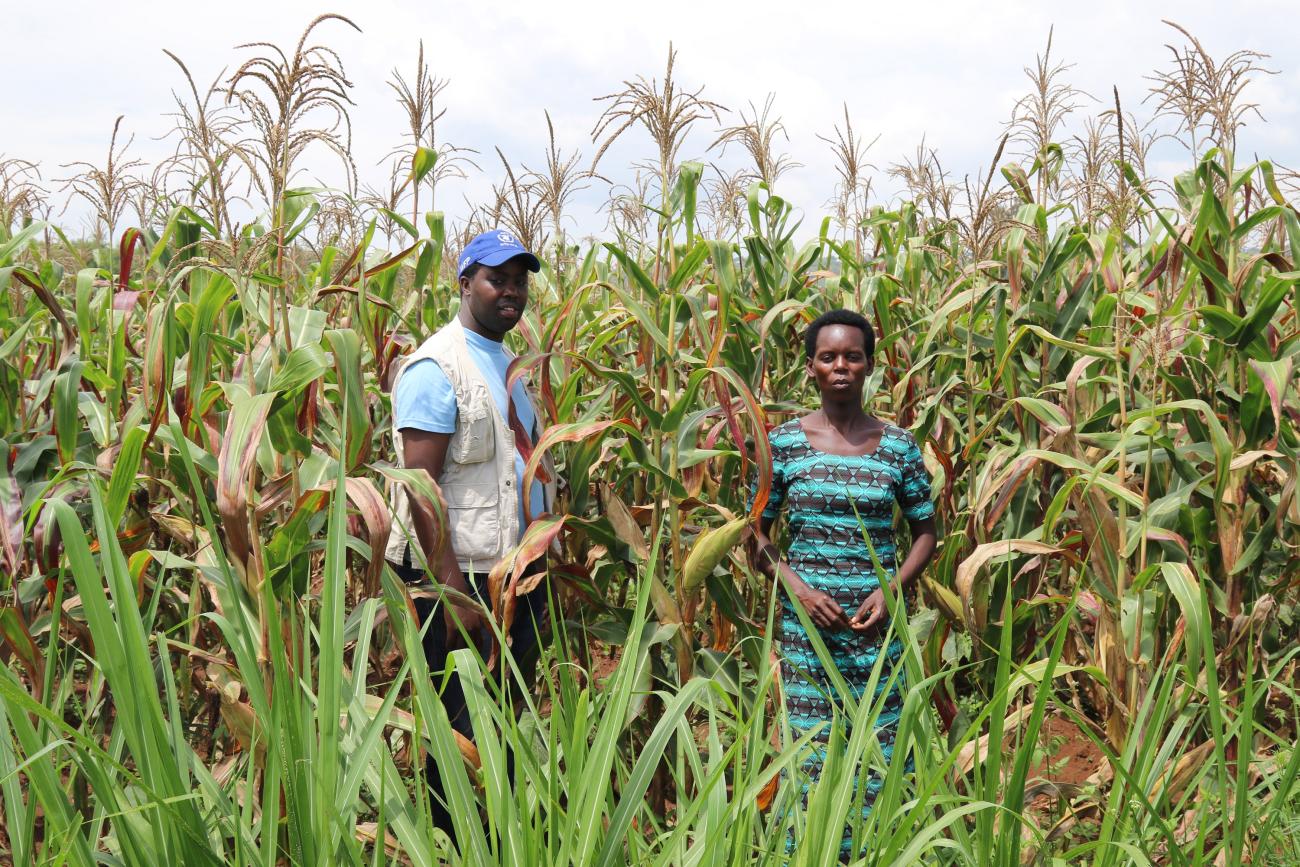Practical trainings delivered by the World Food Programme are helping smallholder farmers in rural areas to reduce post-harvest losses. More than 50,000 farmers have applied good farming and post-harvest methods to meet the food quality demanded by the market.
“Some people may think that small scale farming is not profitable, but when farmers are empowered and apply good agriculture practices, it becomes profitable and helps rural people earn a living,”
says Immaculee, a member of Urumuri smallholder farmer’s cooperative in Mwurire sector, Rwamagana district.
Immaculee Mukampfizi, is one of the many smallholder farmers empowered through WFP’s Farm to Market Alliance (FtMA) which supports turning agriculture into a profitable business. Before being included in WFP’s intervention, Immaculee was losing over 50 percent of her maize during the harvesting period. With WFP support, her food losses have been reduced to under five percent.
“The alliance was formed to make crop markets work better for smallholder farmers by linking them to local and regional buyers and agro-processors. It aims to transform existing agricultural practices through four strategic pathways, providing smallholder farmers with access to affordable finance, quality farming inputs, predictable markets and effective post-harvest management and other agricultural technologies,”
says Ammar Kawash, FtMA Country Coordinator.
WFP does not only deliver trainings to targeted small holder farmers, it also distributes mobile storage facilities including silos, hermetic bags, and plastic sheeting. This enables farmers to keep maize and beans safe from pests as they can safely store food for longer periods, and thus negotiate good market prices.
Farm to Market Alliance is an alliance of six global agri-focused organizations: the Alliance for a Green Revolution in Africa (AGRA), Bayer, Rabobank, Syngenta, UN World Food Programme and Yara International ASA. FtMA forms private and public sector partnerships to deliver products and services tailored to the needs of farmers. The objective is to sustainably improve smallholder farmer incomes and resilience and to develop commercial viability for all value chain stakeholders. FtMA currently works with 90,000 farmers across Kenya, Rwanda and Tanzania, and plans to expand to three other countries by 2021.





